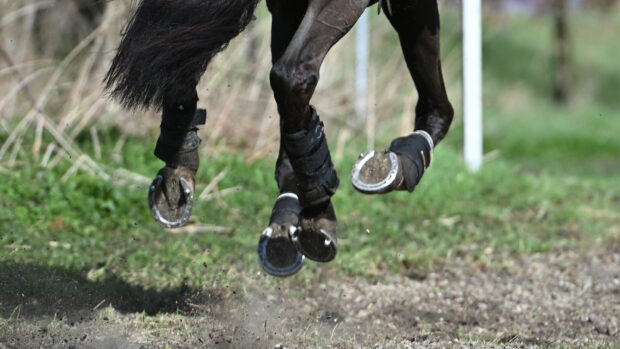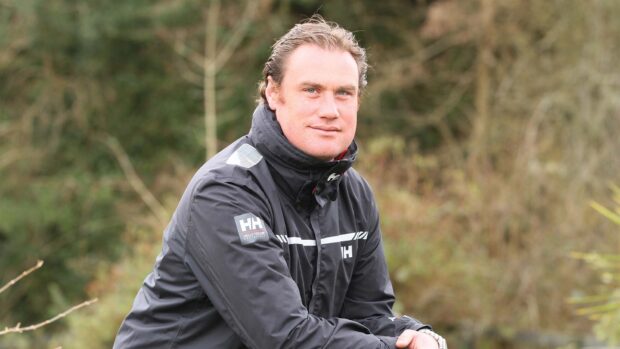Dressage stakeholders have reflected on the Paris Olympics, and how the sport can regain the public’s trust.
The International Dressage Riders Club (IDRC), International Dressage Trainers Club (IDTC), International Dressage Officials Club and Dressage Organisers held their annual meeting on 5-6 November, designed to “inform members about technical aspects of the sport, engage stakeholders in the current status of the discipline and its future direction, and provide an opportunity for stakeholders to focus and debate in a non-competition environment”.
The topics discussed included a review of Paris, the use of artificial intelligence in judging, an FEI update on its dressage strategy and challenges for CDI organisers. A spokesperson for the organisations said that “excellent collaboration” was shown at the meeting, with stakeholders “putting aside self-interest” and embracing “their responsibility for the long-term health of the sport”.
Media did not have access to the meeting – but a press conference was held afterwards with IDTC secretary general Linda Keenan and IDRC secretary general Klaus Roeser.
The representatives were asked how long they thought it would take to win back the “hearts and minds of people doubting the sport”, and how this will be communicated to the wider public when many people form opinions based on images and video clips.
Ms Keenan said that this was a key discussion during the meeting and that members “had a lot of good ideas about how to approach that”.
“Absolutely we want to make sure that our entry into the Olympics is protected. In terms of public opinion we really need a bit more data, but from what we’re seeing the general opinions about dressage are still quite strong and positive. What we have is a relatively small group trolling us,” she said.
“Although we’ve had a couple of high-profile instances, the actual abuse is very, very small.”
Ms Keenan said there had been “two or three [cases] over the past several years”.
“In comparison to other disciplines it’s insignificant,” she said. “We need to do something, it’s not to say that we don’t have a problem, and that we haven’t done things that probably contribute to the problem, but we’re working on it.
“People want to believe in dressage and the sport, except for the really die-hard activists that don’t want you to ride a horse. I think for the reasonable sceptic, it’s possible to gain back their trust.”
Mrs Keenan said the clubs will be doing “specific things to gain more trust” but was unable to give details until the FEI dressage strategy is released. There is not a date for this yet.
Mr Roeser added that “we are under pressure, but we have to solve the problem”. He said there are “big problems”, but that “the last cases happened at private barns”.
“There have been a lot of changes if you look to the last big events, and from our point of view it’s really getting better, and this was underlined [in the meeting] by Ronan Murphy [FEI dressage director] and Jacques van Daele [chief steward],” he said.
He continued that there are limitations on what can be done in cases “behind closed doors” – but said the clubs would like to work with the media to “point out that things have changed in hopefully what we see in the right direction”.
“If we always publish bad news, then people are more and more thinking that everybody is bad, and that’s not true,” said Mr Roeser.
Ms Keenan said the clubs have an opportunity to work harder so positive stories attract more attention – and can “counterbalance anything that comes up”. But she said “a lot of things are being portrayed as abuse or welfare issues that are not”.
“If a horse is hanging on the bridle and not in self-carriage, that horse should not get a good score in a test. Clearly that’s not the objective – but that’s not a welfare issue. That’s just a question of the person, horse or combination, not being good enough at that moment,” she said.
“Some of those things; bad riding, inexperienced riding or whatever you want to call it, not fulfilling the goals to get a good high score is being conflated to be a welfare issue and it’s not. We have to be a little careful about not just jumping that whenever somebody isn’t perfect that they’re abusing their horse – it’s not the same thing.”
Horses ridden behind the vertical in warm-ups was discussed. Mr Roeser said looking at “one picture” does not make sense, and that horses need to be looked at as a whole.
“Limited knowledge will come to limited answers by people who have no real understanding to look at the horse as a whole; at what is warm-up, what is stretching, what is ‘easy’ riding and what is aggressive riding,” he said. “To say ‘the horse is behind the vertical that’s bad’, is totally stupid.”
Cases of horses’ blue tongues at the Paris Olympics, which were reported by the mainstream media, were tackled and one photographer said she took images of “top riders’” horses displaying blue tongues during the competition.
Ms Keenan said she saw no blue tongues at Paris, but that she was not in the warm-up. On blue tongues in general, Mr Roeser said that “we don’t want to say there are not any problems”, but more research is needed.
H&H asked about a review of the Paris Games that was discussed during the meeting, and what any concerns were.
Mr Roeser said: “That’s quite easy. From the riders, stewards and judges, Paris was the best advertisement for our sport. Fabulous riding, super atmosphere, unbelievable arena, great pictures. That is the way we would like to see it more often at all kinds of shows.
“There were no concerns. Ronan told us that the freestyle had the highest social media figures ever, so people really enjoyed it.”
Asked if this response contradicted claims of blue tongues pictured at Paris and the public perception of this, Ms Keenan said: “The blue tongue issue is still up in the [air] in terms of what is the issue, and is it an issue”.
Another journalist asked about riders who were given FEI warnings as their horses were pictured with blue tongues in Paris – as reported after the Games by Swedish media following an interview with FEI veterinary director Goran Akerstrom.
Ms Keenan said “I don’t know anything about it because I wasn’t in the warm-up”.
Mr Roeser added: “As Ronan said [in the meeting] there were no big issues”.
The journalist referred to Mr Akerstrom’s interview with the Swedish media, and pointed out the warnings related to issues in competition – not the warm-up.
Mr Roeser confirmed this topic was not discussed during the meeting, “because we were not really aware of it”. He said Mr Akerstrom was invited to the meeting but unable to attend, and for further explanation on these warnings to ask Mr Akerstrom “what he’s talking about”.
The FEI has announced that a dressage action group will “review the discipline comprehensively” and propose a “strategic action plan”.
Olympic dressage rider Richard Davison moderated the meeting on behalf of the riders’ and trainers’ clubs.
He told H&H that he has chaired many stakeholder meetings but “this one stands out”.
“The top riders and trainers from around the globe attended and were fully engaged,” he said. “They unanimously acknowledged the seriousness of the reputational harm which dressage has suffered in recent times.”
He added: “Reviewing practices and regulations with the aim of improving equine wellbeing was the overriding focus of the two-day meeting. Topics such as regulations governing tack and equipment, young horse physiology and judging were also discussed through the lens of horse welfare. In addition to the focus on horse welfare, human safeguarding protocols also came under review ”
“We conducted ourselves under Chatham House rules so everyone felt they could be frank and talk freely. The degree of collaboration between stakeholders was refreshing, so too was the positive support for the work of the FEI dressage director. Aside from the formal presentations breakaway groups produced valuable proposals and the meeting agreed on the next steps to help develop these.”
- To stay up to date with all the breaking news throughout major shows such as London International and more, subscribe to the Horse & Hound website
You may also be interested in:

Subscribe to Horse & Hound magazine today – and enjoy unlimited website access all year round




